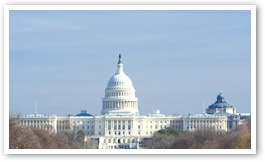In Defense of Certainty
- CHARLES KRAUTHAMMER
It's trendy to be suspicious of people with "deeply held views." And it's wrong.
"And in [William] Pryor's case, his beliefs are so well known, so deeply held, that it's very hard to believe, very hard to believe that they're not going to deeply influence the way he comes about saying, 'I will follow the law.' And that would be true of anybody who had very, very deeply held views."
- Senator Charles Schumer, during a hearing on the nomination of
William Pryor for U.S. appeals-court judge, June 2003
 |
These things come in waves, of course, but waves need to be resisted, even if the exercise leaves you feeling like King Canute. The new wave is fashionable doubt. Doubt is in. Certainty is out.
The New Republic devotes a cover article to hailing the "conservatism of doubt." For the less bookish, Hollywood spends $130 million on a Crusader epic in which the heroes are 12th century multiculturalists, Christian and Muslim, who want nothing more than love, peace and interfaith understanding. (Such people inhabit 21st century Hollywood, but as columnist John Podhoretz points out, they were nowhere to be seen in 12th century Jerusalem.)
And dare you have any "deeply held views" — a transparent euphemism for religiously grounded views — especially regarding abortion, watch out for Schumer and other Democrats on the Judiciary Committee. They might well declare you disqualified for the bench.
The Op-Ed pages are filled with jeremiads about believers — principally evangelical Christians and traditional Catholics — bent on turning the U.S. into a theocracy. Now I am not much of a believer, but there is something deeply wrong — indeed, deeply un-American — about fearing people simply because they believe. It seems perfectly O.K. for secularists to impose their secular views on America, such as, say, legalized abortion or gay marriage. But when someone takes the contrary view, all of a sudden he is trying to impose his view on you. And if that contrary view happens to be rooted in Scripture or some kind of religious belief system, the very public advocacy of that view becomes a violation of the U.S. constitutional order. What nonsense. The campaign against certainty is merely the philosophical veneer for an attempt to politically marginalize and intellectually disenfranchise believers. Instead of arguing the merits of any issue, secularists are trying to win the argument by default on the grounds that the other side displays unhealthy certainty or, even worse, unseemly religiosity.
Why this panic about certainty and people who display it? It is not just, as conventional wisdom has it, that liberals think the last election was lost because of a bloc of benighted Evangelicals. It is because we are almost four years from 9/11 and four years of moral certainty, and firm belief is about all that secular liberalism can tolerate.
Do you remember 9/11? How you felt? The moral clarity of that day and the days thereafter? Just days after 9/11, on this very page, Lance Morrow wrote a brilliant, searing affirmation of right against wrong, good against evil.
A few years of that near papal certainty is more than any self-respecting intelligentsia can take. The overwhelmingly secular intellectuals are embarrassed that they once nodded in assent to Morrow-like certainty, an affront to their self-flattering pose as skeptics.
Enough. A new day, a new wave. Time again for nuance, doubt and the comforts of relativism. It is not just the restless search for novelty, the artist's Holy Grail. It is weariness with the responsibilities and the nightmares that come with clarity — and the demands that moral certainty make on us as individuals and as a nation.
Nothing has more aroused and infuriated the sophisticates than the foreign policy of a religiously inclined President, based on the notion of a universal aspiration to freedom and of America's need and duty to advance it around the world. Such liberationism, confident and unapologetic, is portrayed as arrogant crusading, a deep violation of the tradition of American pluralism, ecumenism, modesty and skeptical restraint.
That widespread portrayal is invention masquerading as history. You want certainty? You want religiosity? How about a people who overthrow the political order of the ages, go to war and occasion thousands of deaths in the name of self-evident truths and unalienable rights endowed by the Creator? That was 1776. The universality, the sacredness and the divine origin of freedom are enshrined in our founding document. The Founders, believers all, signed it. Thomas Jefferson wrote it. And not even Jefferson, the most skeptical of the lot, had the slightest doubt about it.
 This is Meaghen Gonzalez, Editor of CERC. I hope you appreciated this piece. We curate these articles especially for believers like you.
This is Meaghen Gonzalez, Editor of CERC. I hope you appreciated this piece. We curate these articles especially for believers like you.
Please show your appreciation by making a $3 donation. CERC is entirely reader supported.

Acknowledgement
Charles Krauthammer. "In Defense of Certainty." Time (June 1, 2005).
This article reprinted with permission from the author, Charles Krauthammer.
The Author
Charles Krauthammer was born in New York City and raised in Montreal. He was educated at McGill University, majoring in political science and economics, Oxford University (Commonwealth Scholar in Politics) and Harvard (M.D. in 1975). He writes regular essays for Time magazine and contributes to several other publications, including The Weekly Standard, The New Republic and The National Interest. In addition, Krauthammer, winner of the 1987 Pulitzer Prize for distinguished commentary, writes a nationally syndicated column for The Washington Post Writers Group. It now appears in more than 150 newspapers. He is the author of Democratic Realism: An American Foreign Policy For A Unipolar World.
Copyright © 2005 Time

